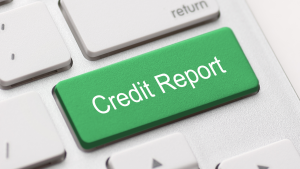Overview
Inflation can be understood as the rate at which the prices of goods and services increase and is typically tracked via the Consumer Price Index. High inflation leads to a decrease in your purchasing power as any given unit of currency can purchase fewer goods and services due to higher prices.
Many different factors may contribute to inflation, including the following:
- Supply chain disruptions
- Demand for goods and services outstrips supply
- Low interest rates may lead to higher spending
- Suboptimal governmental policies
While the above factors are outside of any given individual’s control, there are ways in which we can strive to cope with and adapt to inflation.
How to Cope
Inflation equates to everything becoming more expensive. In the absence of a proportionate increase in income, it makes it increasingly difficult for everyday Canadians to cover their monthly expenses. Here are five potential strategies you and I can use to deal with these inflationary times.
Tip #1: Reassess Your Budget
The first step is to look at your monthly income and expenses. Are there frivolous expenses you can do without? For instance, you may have a habit of purchasing coffee at large coffee chains. Alternatively, you may overspend on new clothing. Double-check that you’re not overspending on non-essentials. If you find any funds that can be redirected toward other, more important, expenses, consider taking advantage of that opportunity.
However, if there’s no wiggle room in your budget at all, you may need to take additional measures.
Tip #2: Increase Your Income
Easier said than done, this can be a crucial step to a better financial life. Consider retraining for a new career, earning a raise or a promotion at your current job, or starting a side hustle. It’s never been easier to learn new skills online. The Internet has given us access to an endless abundance of resources, including online bootcamps, online courses, video tutorials, reading materials – including blogs – and more, often available for a small fee or even for free. It will take initiative on your part, but there are opportunities to increase your skills. For instance, programming is a popular skill that allows many people to earn a high income while working from the comfort of their home. Like any skill, though, it will require perseverance and dedication to learn.
Tip #3: Save and Invest
Around two-thirds of Canadians say they do not have enough money left over at the end of each month to build up their savings. Conversely, only 30% of Canadians say they’re currently putting money away in savings. While saving is difficult for many Canadians, it is a crucial step toward securing a better financial future for yourself. Even a small amount of money saved per week will accumulate.
If you don’t invest any of your savings, their value will deteriorate over time due to inflation and a reduction in purchasing power. Investing in index funds like the S&P 500 will allow you to grow your savings and investments over time due to compound interest, without having to get overly involved in the nitty-gritty of the investment world.
Tip #4: Start an Emergency Fund
An emergency fund is an important tool that allows you to weather life’s storms. When you’re faced with an unexpected emergency like a job loss or car repairs, an emergency fund can be the difference between struggling and successfully dealing with the situation. Even a small amount of savings per week will accumulate over time. Be proactive and incorporate savings goals into your budget.
Tip #5: Practice Financial Discipline and Self-Compassion
Financial discipline and self-compassion reflect well upon one’s emotional intelligence. Perhaps unsurprisingly, a well-developed emotional intelligence can be invaluable in dealing with finances. Avoiding impulsive spending, establishing a disciplined habit of paying your bills on time and setting aside savings and investments, and having the discipline to build an emergency fund, often have as much to do with your emotional intelligence as your income and expenses.
Conclusion
Inflation touches everyone’s life. Yet there are coping strategies we can use to deal with how expensive everything is becoming. From reviewing your budget to building an emergency fund, the above tips offer some excellent ways to make your money go further.
In the meantime, if you’re facing a cash shortfall between paycheques, apply for a personal loan online via OntarioCASH. We don’t check your credit score or credit report during our simple online application process.




